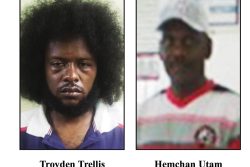Dear Editor,
Now that a date for national and regional elections has been announced by President Donald Ramotar, an important opposition political plank has been demolished, namely that the PPP/C is afraid of the electorate and wanted to prolong its political life by unconstitutional means.
The announcement of May 11 as election date now paves the way for all interested political parties to try and convince the electorate why they should be given the mandate to govern.
In our post-colonial history, only three political parties had the opportunity to govern. These were the People’s Progressive Party, the People’s National Congress and the United Force, the latter as a junior coalition partner following the elections of 1964. That coalition lasted for a mere three years until the UF was unceremoniously booted out from the coalition government but not before the PNC had taken full control of the state machinery which included the Elections Commission.
Guyana does not have a good history when it comes to coalition politics. As mentioned earlier, the first coalition government involving the PNC and the UF ended in an abysmal failure even though the coalition succeeded in the removal of the PPP from office in 1964 in what a former British Prime Minister dubbed “a fiddled constitutional arrangement.”
Earlier attempts to form a coalition government between the PPP and the PNC during the early 1960s failed after Burnham refused to agree on parity terms in cabinet offered by the PPP and opted instead to align himself with foreign vested interests and local reactionary elements to destabilize the PPP government.
After the PNC rigged itself to power in successive national and regional elections there were attempts to form a broad national front government with an agreed programme initiated by the PPP. This attempt once again failed after the PNC dismissed the PPP as a ‘minority’ party even though the whole of Guyana knew differently.
The obsession with power by the PNC knew no bounds. Apart from the blatant disregard for the fundamental rights of the Guyanese people to elect a government of their choice, the regime embarked on a reign of terror in which several Guyanese were harassed, victimized, jailed and in some cases murdered as the Walter Rodney Commission of Inquiry so painfully revealed.
Indeed, some of the very players who once held key and strategic positions during that repressive period are once again in the political spotlight.
Interestingly, the PNC/APNU under the leadership of former military man David Granger is currently in ‘secret talks’ with the Alliance for Change aimed at a pre-election alliance. It is interesting to see how these secret talks will play out, especially given the possible nomination of Moses Nagamootoo as the AFC presidential candidate. Would the APNU play second fiddle to the AFC which apart from being the new kid on the block is lacking in seniority and mass appeal.
If past political experience is anything to go by, any coalition with the PNC is doomed to failure. It is the AFC that runs the risk of being the biggest loser since it has no real political constituency on which it can fall back in a highly likely situation of political misfortune.
This leaves the PPP/C as the only political party that has political stability and a configuration with a strong Civic component that has endured time. The PPP/C formula has remained unchanged since the restoration of democracy on October 5, 1992. The PNC, by contrast has experimented with several combinations and permutations changing from PNC to PNCR then to PNCR1G which eventually morphed into APNU.
The Guyanese electorate is on the look out to see how the current engagement between the APNU and the AFC will play out. It would take more than the magical powers of Houdini to convince the Guyanese electorate that coalition politics would fare any better this time around, especially in an environment characterized by lack of trust and hegemonic tendencies on the part of the PNC.
Yours faithfully,
Hydar Ally








